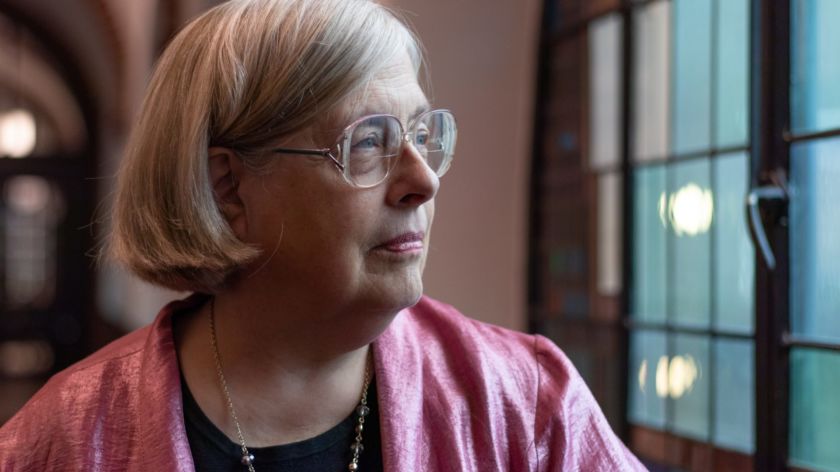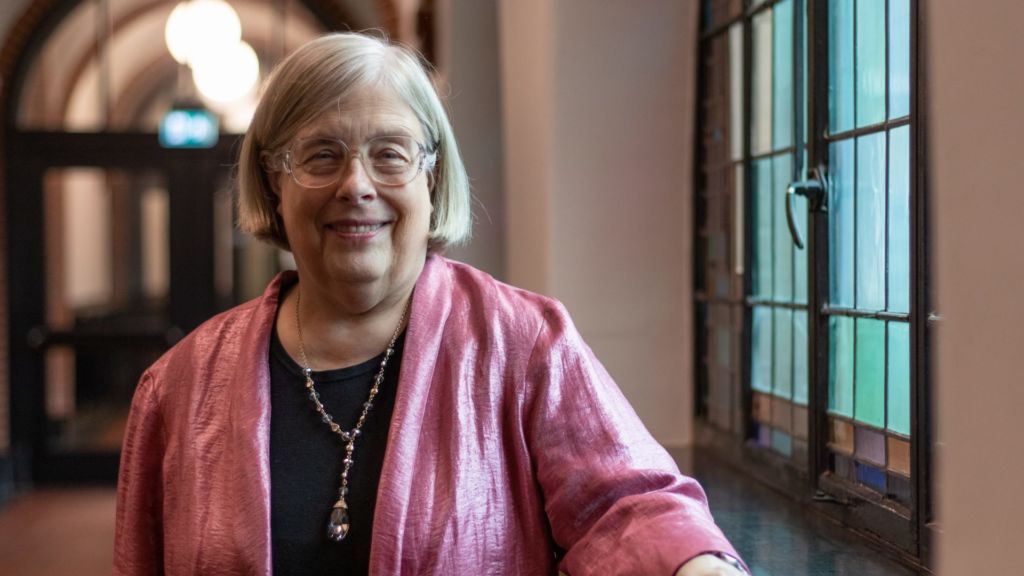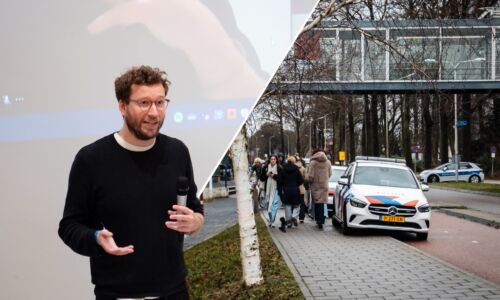New Honorary Doctor: ‘Democracy is under threat in the US’
-
 Theda Skocpol. Photo: Rein Wieringa
Theda Skocpol. Photo: Rein Wieringa
You’ll find Theda Skocpol between Karl Marx and Max Weber on the bookshelves of political science students. In her earliest work, Skocpol sought to explain revolutions from a historical perspective. Her contemporary work reads more like a distress call. Skocpol, an American, today received an honorary doctorate from Radboud University. ‘There will still be elections in ten years’ time, but the question is whether they’ll be fair ones.’
Were you surprised when you heard that you were awarded an honorary doctorate?
‘I was a little. I hadn’t yet heard of Radboud University and I’d only read about Nijmegen in history books. But it’s lovely to be awarded an honorary doctorate. I am glad that people have been influenced by my work, not only by taking it up or citing it but also by discussing it. I think that’s just as important in research.’
You have actively sought meetings with students in Nijmegen. Why?
‘Students are the future. I’m always curious about their questions, plus it’s just nice to talk to them. In Nijmegen I hear a lot of concerns about the future of Western liberalism and democracy. That’s no surprise, that same discussion is being conducted in many countries.’
Is it unusual that the Dutch are so focused on the US?
‘In my opinion, Dutch people are pretty cosmopolitan. They follow European and American politics just as closely as their own domestic politics, which is also anything but boring. Their focus on the US comes as no surprise to me because the events in America have a fairly major impact on other countries.’
You write that policy in the US no longer reflects what voters want. What do you mean by that?
‘That applies to both the Democrats and the Republicans, but in particular Republican policymakers are very radical at the moment. They listen to a minority of American voters – I’d estimate between 25 and 30 percent.’
Who are they?
‘On the one hand, there are Tea Party activists and other strongly conservative, often Christian voters. There’s also a network of about four hundred wealthy conservatives, set up by the brothers Charles and David Koch (David has just died). They pour money into think tanks and lobby groups to get Republicans on their side.
‘The Koch brothers have an incredible amount of power, and they can’t be held responsible for policy in the US. Voters do have the power to throw the Republicans out of office, but they’re often influenced by election campaigns and even by old-fashioned door-to-door campaigns organised by the Koch network.’

Does Trump still determine what happens?
‘That’s hard to say. The President has a lot of personal influence. He’s caused chaos in the Middle East with a single phone call to the Turkish president. Some people find his incompetence amusing, but it’s less amusing when it leads to turmoil and deaths, as we see now.’
‘On the other hand, some things are clearly not attributable to Trump, such as tax cuts and the lack of climate policy. That’s definitely up to other Republicans.’
What does this mean for democracy in the US?
‘That it’s under threat. I think that democracy can withstand a pounding, as you see with the media, which is not intimidated by all that threatening talk. But our legal system is currently headed by an attorney general (William Barr, Ed.) who thinks he has to implement everything the president wants, even if it’s not entirely legal. If Trump is re-elected, I don’t know whether democracy will make it to the end of his term.’
What’s your worst case scenario?
‘That Trump won’t leave the White House, even if he is defeated. A greater threat is that other Republicans will restrict voting rights. If the people who’re in power decide who can vote, democracy becomes a façade. In ten years’ time there will still be elections, but the question is whether they’ll be fair ones.’
Do you see yourself as an activist?
‘I certainly see that my research is relevant to American politics, and I am prepared to speak out as a citizen. But I want to continue to distinguish between speaking as a citizen, where I’m a Democrat, and as a researcher, where I take a step back and listen to both sides of the story without expressing my own opinion. I think we should expect that of all academics.’
Is your research completely separate from your own opinion?
You can probably deduce my opinion from the questions that I ask. But the question is: can everyone learn something from your research, regardless of their political beliefs? If so, then it is sufficiently objective. Academics must also be able to draw conclusions that not everyone agrees with. I think I write things as they are. If, next time, those things are written down at the expense of the Democrats, so be it.’
Do you ever get tired of talking about Trump?
‘Definitely, and I am also sick of seeing him. That’s one of the reasons why I think he might not be re-elected: many Americans are simply tired of him.’



